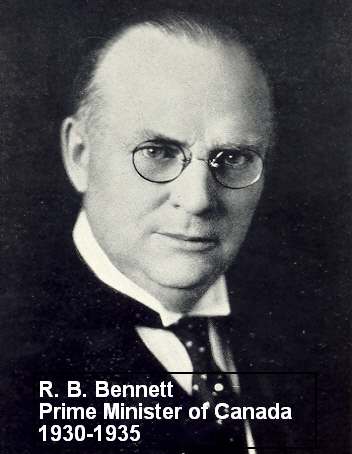 | |
Last
revised: |
Claude
Bélanger, Taken together the eight pieces of legislation enacted by R.B. Bennett's government (1935) were the Canadian version of F. D. Roosevelt's New Deal and constituted the principal attempt made by the Dominion Parliament to cope with the economic and
social problems disclosed by the Great Depression. Six of the eight statutes were invalidated by the Judicial Committee of the Privy Council (1937): The Weekly Rest in Industrial Undertakings Act, The Limitations of Hours of Work Act and the Minimum Wages Act because they were not treaties falling within the Dominion Power under section 132 of the Constitutional Act, 1867 or within the residuary clause. The National Products Marketing Act because it was not regulation of "Trade and Commerce". The Employment and Social Insurance Act because it invaded the field of property and civil rights; section 14 of the Dominion Trade and Industry Commission Act was also struck by the Court. Only the Farmers Creditor's Arrangement Act and section 498A of the Criminal Code (dealing with unfair trade practices) were allowed to stand. The decision of the J.C.P.C. sparked widespread discontent in English Canadian centralist circles and led to their demanding that appeals to London be abolished. In the short run the decision of the Court prompted the Mackenzie King government to form a Royal Commission (the Rowell-Sirois Commission) on Dominion-Provincial Relations.
Caricature of Bennett by Lapalme (1935) © 2001 Claude Bélanger, Marianopolis College
|

